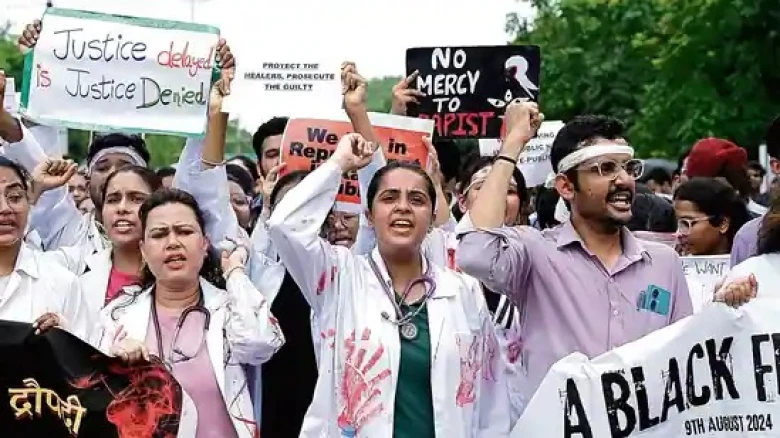The ministry's comprehensive list of measures was announced on Monday and communicated to the heads of all central government hospitals...
Digital Desk: In response to ongoing concerns about safety in healthcare facilities, the Union Health Ministry has introduced a new set of stringent security measures for central government hospitals. This move comes amid widespread protests by resident doctors across India, triggered by the horrific rape and murder of a trainee doctor in Kolkata.
The new directives are aimed at bolstering the safety of healthcare professionals, especially women, who have been increasingly vulnerable to violence and harassment.
The ministry's comprehensive list of measures was announced on Monday and communicated to the heads of all central government hospitals.
Key among the new regulations is the strict monitoring of all entry and exit points within these facilities. The ministry has also mandated the provision of escorts for women health professionals working night shifts. This step is intended to enhance their safety during late hours, a time often associated with heightened risks.
The ministry’s decision highlights the need for more secure working environments for female health workers. It has been emphasized that hospitals should provide adequately secured duty rooms equipped with basic amenities for female professionals. Additionally, these professionals should be deployed in teams during night shifts rather than individually.
Secure transportation arrangements must also be made for any movement required during the night, ensuring their safety at all times.
The ministry's communication underscores a longstanding issue: government hospitals are often more accessible to the public compared to private facilities, which increases the risk of unauthorized individuals entering the premises. While accessibility is crucial for patient care, it also opens the door to potential security threats. Incidents of violence, including assaults on staff, have been reported, often linked to disputes or dissatisfaction with medical care. Such violence not only disrupts hospital operations but also adversely affects patient care.
To address these security challenges, the ministry has outlined several specific actions. First, it has called for the installation of high-resolution CCTV cameras at strategic locations throughout hospital premises, including entrances, exits, corridors, and other sensitive areas. The establishment of a control room within each hospital is also mandated, where an administrative staff member and security personnel should be stationed to ensure rapid response to emergencies.
Furthermore, the ministry has recommended the employment of a sufficient number of trained security guards to conduct regular monitoring, patrolling, and surveillance. Comprehensive plans for handling various types of emergencies are to be developed, with periodic mock drills to ensure that staff and security personnel are well-prepared for any situation.
In conjunction with these national directives, state-level measures are also being implemented. For instance, at the Indira Gandhi Institute of Medical Sciences (IGIMS), a meeting was held to address security concerns and enhance facilities for medical staff. As a result, a proposal was put forth to install 200 additional CCTV cameras across the campus. Moreover, the construction of separate restrooms and washrooms for female workers was approved, in response to demands from postgraduate students.
The new security measures represent a significant step towards improving the safety and working conditions of healthcare professionals in central government hospitals. By addressing both the physical security and logistical challenges faced by these workers, the ministry aims to create a safer and more secure environment for all healthcare providers, ultimately contributing to better patient care and a more effective healthcare system.

Leave A Comment